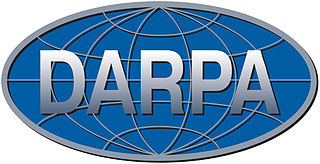
Q: “How common are attacks, cyberattacks, against the U.S. military?”
A: “Every day.”
That’s a fairly scary answer, yes? It’s even scarier when you consider the source—Dan Kaufman, the Director of the Information Innovation Office at the Defense Advanced Research Projects Agency (DARPA).
In a recent 60 Minutes special, Dan gave the public an inside look at how the government is working to thwart these attacks in the future (DARPA’s job to stay ahead of the game, not to make incremental improvements). He also explained how private companies and consumers can prepare for the future of cyber-crime. With that in mind, let’s take a closer look at some of the key takeaways that stood out to us:
Internet of Things
“I don’t think the Internet is broken. I think the things we put on the Internet are broken.”
We couldn’t agree more with this statement. Although IoT is a promising trend, it makes security exponentially more complicated by giving hackers more “entry points.” In the past, you had to protect your servers and in-house devices. Now, you have to protect basically any device that’s connected. Not an easy task. All it takes is one compromised device to give hackers a foot in the door.
Search Engines
Hackers are using the internet to buy and sell their illegal materials, making it the best place to identify and stop them. Another DARPA project, Memex, is an advanced search engine that can be used to penetrate the “dark web” and locate illegal activity. Memex is specifically designed to comb through illegal ads and identify names and numbers that link together to form a crime ring.
When a private company is the victim of a cyber-theft, these black market websites are usually where the information ends up. Companies – like Morgan Stanley – that routinely check illegal sites for stolen information can benefit from finding sensitive information before it can be sold and do real damage.
Detecting Hackers with AI Software
One of the major trends in IT security – something that DARPA has focused on in several different projects – is the need to detect threats and hackers in real time. One of their defensive inventions is a program able to scan the military’s global computer network to locate any machine or application that may have been hacked. Another project is artificial intelligence software that will detect a hacker attack and eliminate it with no human involvement. In order to prevent attacks from damaging your company, take notice of DARPA’s aggressive attention to detecting threats in real time.
While DARPA’s focus is on protecting the U.S. from cyber-attacks, private companies can take note of the things that they are concerned with to learn what areas of cyber-theft they should be preparing for. Organizations looking to protect their information and infrastructure from the increasingly sophisticated hacker threat need to take a page out of DARPA’s book. Responding to threats as they arise will not keep you safe. You should constantly be adapting and looking for innovative solutions that anticipate and respond to new threats.

